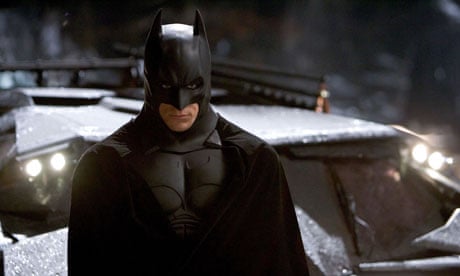After surveying 674 boys aged four to 18, Professor Sharon Lamb of the University of Massachusetts criticised the narrow depictions of masculinity in recent movie adaptations of Iron Man and Batman. These films, argued the psychologist, offer narcissistic, sexist and socially unjust male leads, in contrast with the more nuanced portrayal of masculinity in the comic book superheroes of old – a problem, as we are told comics act as gateways to literacy for boys.
The study divides superheroes into socially harmful and socially positive categories. But it misses the fact that no superhero can be separated from the web of relations internal to their individual stories, and how each superhero relates to others in the context of the universes they belong to.
This report seems to echo sentiments similar to the accusations of those levelled at the genre by Freidric Wertham in his 1954 report "Seduction of the Innocent". Originally inspired by a liberal ill-at-ease assessment of the promotion of illiteracy and moral decay by horror comics, the report led to a not often retold episode in the history of American censorship, in which public burnings of books happened as part of a fervent and reactionary campaign.
I am not suggesting the authors of the report would ever consider similar actions, but I can't shake the feeling that even in this research the "superhero" is still chronically misunderstood. By reducing all understanding of the genre to whether it is a form of toxic intrusion into childhood, we miss the complexity of their interactions and relationships.
Yes, Iron Man (in his film version, at least) and Batman articulate a glorious spectacle of dripping wealth and grey-area morality, but the narratives of their respective worlds already include layers of self-deception, personal uncertainty and the difficulty of every quest for higher ideals. Witness, for example, Iron Man's lashing out at his own reflection after watching a news report about terrorists using his technology to hold a village to ransom, or Batman's never ending mission for personal absolution through an obsessive struggle with criminals, which he pursues instead of dealing with his own guilt at the death of his parents.
Each character, through their labours and failures, embodies a set of vices and virtues that we can reflect upon in order to navigate our own way through the complexity of ethical and moral situations we may find ourselves in.
Some of the most complex stories which feature superheroes, from Superman to Spiderman, Ironman and Batman all involve a recognition of the ultimate impossibility to always prevent harm. In the Spiderman comic and movies, the death of Peter Parker's Uncle Ben results in his awareness of his responsibility towards others. Batman is punished in the Dark Knight for ignoring the obscure threat posed by the Joker in order for him to pursue his vendetta against organised crime. This ultimately results in the death of the woman he loves. Iron Man is shown in the first of his films to discover his company's implication in war profiteering, and proceeds to close his weapons development programmes.
In all of these narratives, the hero of the film must come to terms not only with his own implication in the harm done to others, but must accept that his ability to make finite choices sometimes results in the exclusion of generally good outcomes. This does not undermine the heroism of the superhero, but places it in a context of precariousness and uncertainty, where doing a good deed must be seen as taking place in a world where the consequences are unpredictable. Despite this uncertainty, the heroes must shoulder the "great responsibility" their power brings them, without any of the security of reliable moral virtues.
It should also be noted, as sci-fi writer Joss Whedon has agreed, that movies are "gateway drugs" into the graphic novels and comics themselves, where more layers of emotional complexity become available for children to engage with and think through. So perhaps the young men who see the films will discover fictional universes populated with characters such as the X-Men and Green Arrow. These are heroes who see that adversity, hardship, and community are not distinct from justice, fairness and spectacular acts of daring.
